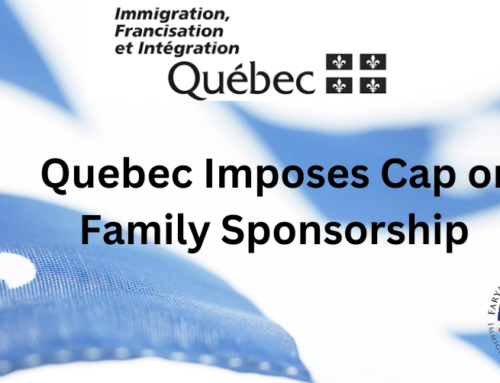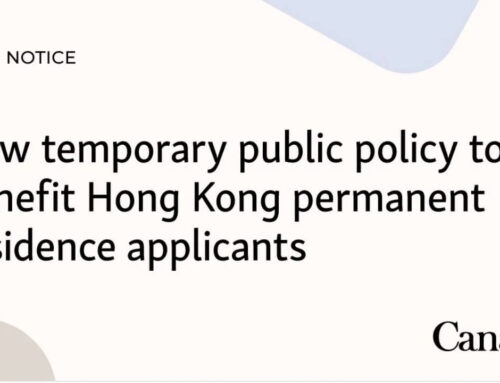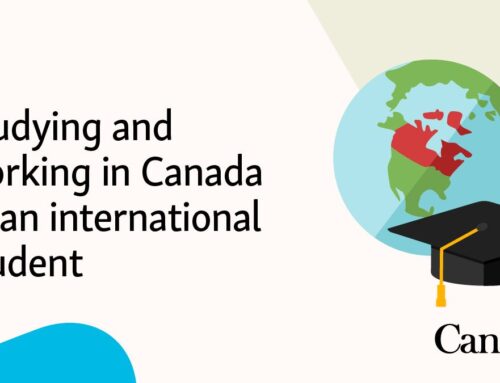IRCC updates eligibility requirements for Spousal Open Work Permits
On March 19, 2024, Immigration Refugees and Citizenship (IRCC) changed the eligibility requirements for Spousal Open Work Permits (SOWPs). When the announcement was made on January 22, 2024 regarding the changes to the international student program, IRCC advised that spouses of international students in undergraduate and college programs will no longer be eligible for SOWPs and only spouses of international students enrolled in master’s or doctoral degree programs would be eligible commencing on March 19, 2024.
Now, the eligibility criteria for SOWP has been updated by IRCC has been separated into three areas: (1) Spouses/Common Law partners applying for a SOWP on or after March 19, 2024; (2) Spouses/Common Law partners previously applied for a SOWP before March 19, 2024; (3) Spouses/Common Law partners applying to extend their existing SOWP.
Exceptions to Limitations on SOWP for Undergraduates
There are some exceptions for the spouses or partners of undergraduate students. Spouses of undergraduate students in one of the following professional degree programs at a university are also eligible to apply for a SOWP:
- Doctor of Dental Surgery (DDS, DMD)
- Bachelor of Law or Juris Doctor (LLB, JD, BCL)
- Doctor of Medicine (MD)
- Doctor of Optometry (OD)
- Pharmacy (PharmD, BS, BSc, BPharm)
- Doctor of Veterinary Medicine (DVM)
- Bachelor of Science in Nursing (BScN, BSN, BNSc)
- Bachelor of Education (B. Ed.)
- Bachelor of Engineering (B. Eng., BE, BASc)
Spouses and partners applying for an SOWP must provide documents that prove a relationship to the student and one document showing proof of their partner’s enrolment in a degree-granting program of study.
IRCC accepts:
- a valid Letter of Acceptance(LOA) from a Designated Learning Institution (DLI)
- a proof of enrolment letter from their spouse or partner’s DLI
- transcripts from their spouse or partner’s current program
Spouse or Common-Law Partner Applied for SOWP Prior to March 19, 2024
IRCC says that those who applied for a SOWP before March 19 are still eligible if their partner:
- Has a valid study permit.
- Is eligible for a post-graduation work permit(PGWP).
- Is a full-time student at one of these types of schools:
- a public post-secondary school, such as a college or university, or CEGEP in Quebec
- a private college-level school in Quebec
- a Canadian private school that can legally award degrees under provincial law (for example, a bachelor’s, master’s or doctoral degree)
Spouse or Common-Law Partner Applies to Extend SOWP
These requirements are the same for current SOWP holders who apply to extend their existing permit, so long as they already have a valid study permit, the international students meets eligibility requirements for a PGWP, and is a full time student at one of the eligible institutions.
What if you’re not Eligible?
Spouses and partners of international students who find themselves no longer eligible for a SOWP can apply for another type of work permit or a visitor visa (TRV). However, those who arrive in Canada as a visitor are not permitted to work.
A SOWP allows holders to work for almost any employer in Canada. It is also a means to support IRCC’s mandate to promote family reunification.
Spouse or Common-Law Partner Applies for SOWP after March 19, 2024
Starting March 19, 2024, spouses or common-law partner smay be eligible for an open work permit if the international student has a valid study permit and are studying in either
a master’s or doctoral degree program in a university or polytechnic institution, or
one of the following professional degree programs at a university:
- Doctor of Dental Surgery (DDS, DMD)
- Bachelor of Law or Juris Doctor (LLB, JD, BCL)
- Doctor of Medicine (MD)
- Doctor of Optometry (OD)
- Pharmacy (PharmD, BS, BSc, BPharm)
- Doctor of Veterinary Medicine (DVM)
- Bachelor of Science in Nursing (BScN, BSN, BNSc)
- Bachelor of Education (B. Ed.)
- Bachelor of Engineering (B. Eng., BE, BASc)
Spouse or common-law partner must also provide one of the following documents to prove the student’s enrolment in a degree-granting program of study:
- a valid letter of acceptance from the designated learning institution (DLI)
- a proof of enrolment letter from the DLI
- transcripts from their current program
- proof of relationship to the student





